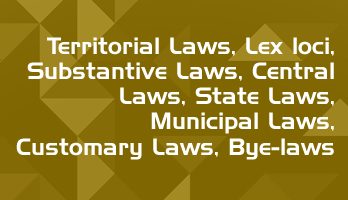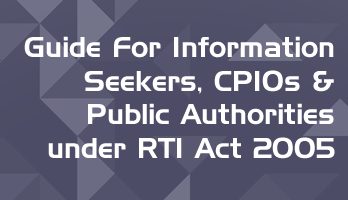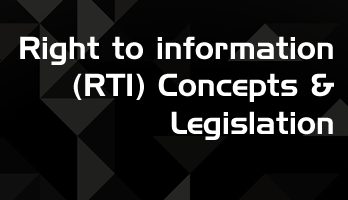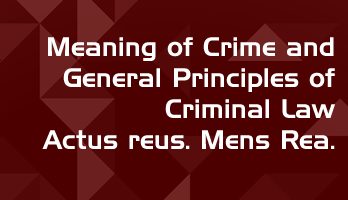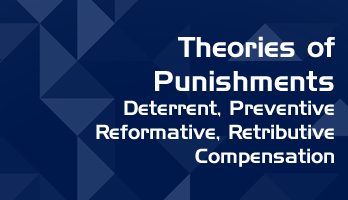Free Full Course Available on LawMint's YouTube Channel
How to Land Your Dream LLB Internship in a Top Law Firm
- Part 1 - Introduction
- Part 2 - Internship Planning
- Part 3 - Internship Research
- Part 4 - Building Your Profile
- Part 5 - The Email
- Part 6 - The Resume
- Part 7 - The Cover Letter
- Part 8 - The Interview
- Part 9 - Self Development
Practical and comprehensive course, with real examples and step-by-step analysis of the complete internship application process. Check out LawMint's YouTube channel now!
Socio-Economic Goal of the Constitution
The independence of the country heralded a new era. The Constitution laid down the goals which the nation committed to achieve. The socio-economic goals and the founding faith of our Nation were incorporated in the Constitution. It enjoined the law the function to make environmental adaptations of the existing legal system, feeling the needs and the wants of the people, evolving principles of law and legislative formulations and statutory institutions which will harmonize with the urgencies of our times, and translating into action the mission of the Constitution.
Thus, the goals set by the Constitution made it imperative to bring about socioeconomic changes.
The driving force of social change in the Indian context is the re-discovery of the goals of our Freedom Struggle, the realization of our national identity, the reflection on our founding faiths and fighting creeds, the strengthening of our resolves and launching on our future with a flaming spirit, at once authentic, impatient and adventurous.
A militant awareness that we are free people with commitment to social justice still running our affairs on a legal system, self-divided and caught in a spiritual crisis, is the beginning of the mission. The political declaration of the independence is our incarnation to a nation; the economic declaration of independence is battling for self-expression, marching from the Constitution towards law-in-action. Frankly, the establishment is afflicted with the pathology of split personality and loss of identity and amnesia of our tryst with destiny.
A powerful, planned comprehensive legal Protestantism, radical enough to abandon the spell of five-star prosperity and to wage war on mass poverty and social disability is the demand on the Indian jurist.
Socio-economic Changes and Legislative Reforms of Land Law
In pursuance of the declared objective of the Constitution, legislative process started for bringing about socio economic changes. The economy of the country being based in most part on land and it also governed the social structure, the land policy received priority.
The excessive pressure on cultivable land, the concentration of land proprietorship, the miserable economic condition of the peasantry and their exploitation and urgent need to increase production and to modernize methods of agriculture and channels of credit – all these have had a cumulative effect on land tenure and land reform legislation. The attention of independent India was, therefore engaged immediately and primarily towards overhauling land legislation to meet the needs of the time.
Consequently, all States have enacted land reforms legislations. Legislation has been enacted for the removal of the intermediaries between the tiller of the soil and the State, consolidation of holdings land ceiling, eradication of rural indebtedness and institutional sources for agricultural credit. Schemes, projects and programmes for the improvement of agriculture horticulture and animal husbandry have been launched.
For all-round rural uplift Village-panchayats have been established, vigorous literary drives have taken place, village and cottage industries have been developed and numerous other similar programmes have been worked out and given effect to.
Legislative Reforms of Labour Law
The second great concern of the Nation was to secure the welfare of the labour and industrial peace. In India, till the First World War there was almost absence of labour legislation. It was between the 1919 and 1939, that some essential legislation for the protection of labour was introduced. Some legislation was enacted after the Second World War and before the country achieved political independence. This was quite inadequate in view of the new socio-economic changes.
After independence numerous labour legislations have been enacted to ameliorate the condition of the labour. The new labour laws are primarily concerned with the welfare of the working class and attempt to bring industrial peace which will in its turn accelerate productive activity of the country resulting in its prosperity.
Chief Justice Gajendragadkar emphasized the necessity of adjusting the labour law to the new social requirements when he wrote: Industrial Disputes Act, 1947 is the pioneer and potential legislation on the subject. The Act goes to free the parties from the shackles of their contractual stipulations and throws open the issues relating to the wages, allowances, compensation for retrenchment, closure, bonus and other fringe benefits for determinate afresh on broad principles of fairness and equity and in a forum different from the ordinary civil court.
Strikes, lockouts, closures, wages during strikes and lockouts and layoffs, unsettling or pre-empting disciplinary action taken or proposed by the employer-these and numerous matters lie within the ambit of this legislation.
This has been followed by a host of legislations such as :
- The Minimum wages Act, 1948,
- The Employees State Insurance Act, 1948,
- The Industrial Disputes (Banking and Insurance Companies) Act, 1949,
- The Apprentices Act 1961, the Maternity Benefits Act, 1961, etc.
The Labour Legislation in India has now become an important part of that social and economic legislation which derives its inspiration from the recognition of the wider responsibilities which the state has undertaken to protect the economically weaker sections of the community.
In India, Law has played a crucial role in reforming the society. Labour law, Land Reform Laws, laws relating to Marriage, Guardianship, Succession, Adoption, Laws providing for equal opportunities to persons with disabilities, Laws relating to elderly persons are some such examples.
Legislative Reforms of Family Law
Another important field where legislative activity was called for is family law. The law was lagging much behind the social advancement. The influence of the social reforms and emergence of new religious sects with progressive and reformative outlook, economic factors, rapid scientific and industrial development had necessitated the change in law. The British Government did not take any substantial legislative measures in this regard for political reasons.
After the independence urgent need to change the law in this field was felt. However, there were conservative sections also for whom any change in the law amounted to inference in religious matters. Therefore, some social preparedness was also necessary for the reform. Four major Acts i.e, Hindu Marriage Act, 1955, Hindu Succession Act, 1956, Hindu Adoptions and Maintenance Act, 1956 and Hindu Minority and Guardianship Act, 1956 were passed.
The Special Marriage Act, 1954 also to some extent, covers the field. Hindu Marriage Act has been amended a number of times to meet the changing social outlook and requirements.
These Acts while not making complete break from the past introduce radical changes conforming to new ideas and requirements. Now marriage tie is not voidable. New matrimonial reliefs have been provided. The rights of females in the matters of succession and proprietary rights have been made equal to that of males.
Position of female has been improved in the matter of adoption and guardianship also. Rights of adoptees and minors have been firmly secured. Dowry Prohibition Act, 1961 Amended by Dowry Prohibition (Amendment) Act, 1986 has been passed to deal with the social evil of dowry. Family Courts Act, 1984 has been enacted for the settlement of matrimonial disputes.
Acts have been passed to eradicate many other social evils and disabilities like the U.P. Removal of Social Disabilities Act, 1947; the West Bengal Hindu Social Disabilities Removal Act, 1948; the Untouchability offences Act, 1955; renamed as the Protection of Civil Right Act have been passed to remove the evil of Untouchability.
The evil practice of Devadasis, sacrifice of animals in religious places and prohibition of the entry to temples to certain section of the society have been removed or regulated by
- Madras Animal Sacrifices Act, 1950,
- Madras Prevention of Devadasis Act, 1947
- Madras Temple Entry Act, 1947,
- Bombay Hindu Places of Public Worship (Entry Authorization) Act, 1956
and many other similar Acts have been passed for social reform and to reconstruct the Hindu Social order.
Legislation for Persons with Different Abilities
The Parliament of India has enacted four legislations for Persons with Disabilities viz.
- (i) Persons with Disability. (Equal Opportunities, Protection of Rights and Full Participation) Act, 1995, which provides for education, employment, creation of barrier free environment, social security, etc.
- (ii) National Trust for Welfare of Persons with Autism, Cerebral Palsy, Mental Retardation and Multiple Disability Act, 1999 has provisions for legal guardianship of the four categories and creation of enabling environment for as much independent living as possible.
- (iii) Rehabilitation Council of India Act, 1992 deals with the development of manpower for providing rehabilitation services.
The Mental Health Act, 1987 deals with mental health authorities, psychiatric hospitals and nursing homes admission and detention in psychiatric hospital or nursing homes inspection, discharge, leave of absence and removal of differently abled persons.
Supreme Court and Socio-Economic Changes
Supreme Court of India, the apex Court of justice as guarantor and protector of the fundamental rights and interpreter of the Constitution, has a constitutional duty to secure socio-economic and political justice to all the citizens of the country. It is to be noted that the Constitution is not merely a legal but basically a political document. Therefore, interpretation of important constitutional questions involve policy formulation. Here lies the essence of judicial activism.
The Supreme Court with judicial activism has interpreted the law to further the cause of socio-economic reforms. It has not been slow to respond to the requirement of implementing the socio-economic reforms and has been moulding its remedies to meet new interaction and has increasingly come to direct the method of implementing such reforms and to supervise the working of these programmes.
In recent years the Supreme Court has brought about more far-reaching changes, in this lesson, it is not possible to mention all but only a very brief reference to such changes in some of the fields may be stated.
Interpretation of the Constitution
Under the Constitution, the meaning of other authorities’ occurring under Article 12 has been considerably widened to cover more and more institutions and organisations within the term ‘State’ and to prevent them from acting in violation of Fundamental Rights. There has been a gradual broadening of the view of the Supreme Court in the matter of civil liberties.
With Maneka Gandhi v. Union of India a new trend has emerged. After that the Court began to expand the frontiers of fundamental rights and of natural justice through a variety of creative interpretations inspired by judicial activism. In the process, the judges rewrote many parts of the Constitution.
For example, the right to life and personal liberty in Article – 21, was converted ‘de facto’ and ‘de jure’ into a due process clause, contrary to the intention of the makers of the Constitution. This right has soon expanded to encompass many other rights. This has given rise to a new kind of prison jurisprudence by creating new rights to prisoners under Article – 21. In this new prison jurisprudence right to speedy trial, right to free legal service right to human dignity, right against torture have been made some of the components of the fundamental rights.
Directive Principles of States Policy have been growing given importance by the Court. It has been held that there is no conflict between the Directive Principles and a Municipality to make arrangements for public sanitation under the supervision of the Court.
The various decisions of the Apex Court will go a long way to promote social justice in this country.
Public Interest Litigation (PIL)
Public Interest Litigation is another action of great importance on the part of the Supreme Court in its introduction. In view of its importance and growing increasing ambit, it has been discussed separately. Interpretation of Welfare Legislation. Legislation meant for the rural economic uplift or for the welfare of the weaker sections of the society has been liberally interpreted in their favour. The Supreme Court has upheld the validity of land reform laws enacted by several States.
The Supreme Court of India, the apex Court of justice through a variety of creative interpretations inspired by judicial activism, has played a very important role in bringing socio-economic changes in the society and in improving the conditions of women and poor sections of society.
Sometimes legislature and judiciary have pulled in different directions. It is also to be noted that there have been occasions where the two agencies of social and economic development i.e., the Legislature and the Judiciary have pulled in different directions.
One such important matter has been the right to property. Its interpretation by the Supreme Court was found by the Parliament to be standing in the way of economic development. Thus, Constitution Amendment Acts were passed from 1951 to 1964 clarifying that the right to compensation given by Article 31 of the Constitution was not justiciable in a court of law and that the quantum of compensation as fixed by legislature was final. Further, amendments have also been made to protect certain categories of law from the application of Article 31.
Similarly, the legislative efforts have been on to restrict the definition of ‘industry’ as laid down in Bangalore Water Supply case. However, there have not been many such occasions. Full effect of legal changes are yet to be realised. By and large, Legislature and the Court both have enacted and moulded and shaped the law respectively to achieve the goal of social, economic and political justice enshrined in the Constitution However, due to ignorance and illiteracy of the masses and lack of adequate and effective enforcing machinery full impact of the changes is still to be realized.
Questions
Name any three Acts which helped in improving the condition of working labourer.
The three Acts are:
(i) The Factory Act, 1948
(ii) The Industrial Disputes Act, 1947 and
(iii) The Workmen Compensation Act, 1923
Name any two Acts in the area of Family Law which helped in improving the condition of women in the society.
The two Acts are:
(i) Hindu Marriage Act, 1955 and
(ii) Hindu Succession Act, 1956
Acknowledgement : This article is adapted from Swayam-NIOS course material.
Free Full Course Available on LawMint's YouTube Channel
How to Land Your Dream LLB Internship in a Top Law Firm
- Part 1 - Introduction
- Part 2 - Internship Planning
- Part 3 - Internship Research
- Part 4 - Building Your Profile
- Part 5 - The Email
- Part 6 - The Resume
- Part 7 - The Cover Letter
- Part 8 - The Interview
- Part 9 - Self Development
Practical and comprehensive course, with real examples and step-by-step analysis of the complete internship application process. Check out LawMint's YouTube channel now!



